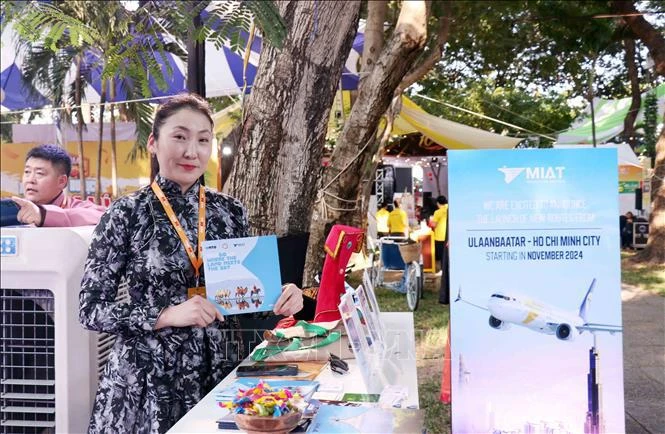Vietnam, Mongolia seek to boost trade cooperation
The State visit to Mongolia by Party General Secretary and State President To Lam is expected to open up new avenues for businesses in both countries to expand their partnerships and explore investment opportunities.

The State visit to Mongolia by Party General Secretary and State President To Lam is expected to open up new avenues for businesses in both countries to expand their partnerships and explore investment opportunities.
Vietnam was the first Southeast Asian nation to establish diplomatic relations with Mongolia, on November 17, 1954. Over the past seven decades, their traditional friendship has flourished, achieving notable progress across various sectors.
Experts highlighted that Mongolia places importance on Vietnam's rising role and status. In discussions with Vietnamese leaders, the Mongolian side consistently affirmed Vietnam is a key partner in its foreign policy within Southeast Asia and a vital gateway to the 700-million-strong ASEAN market.
Their first trade agreement was signed in 1958. Vietnam’s Ministry of Industry and Trade has since sealed a memorandum of understanding (MoU) on economic and trade cooperation with Mongolia's Ministry of Foreign Affairs (initially signed in 2008 and renewed in August 2021) as well as a 2023 MoU on sustainable rice trade with Mongolia's Ministry of Food, Agriculture, and Light Industry. These latter aims to establish a comprehensive cooperation mechanism to ensure food supply and stabilise rice markets in both nations.
Yet bilateral trade remains modest, primarily due to Mongolia's small market size and geographical challenges. Vietnam mainly exports to the market grain products, LCD and LED screens, and rice, while importing tungsten ore and a few other products.
Experts noted that Mongolia's vast territory and rich mineral resources present significant potential for stronger collaboration between the sides, especially in mining, rare earth metals, and critical materials for electric vehicle production, green economy initiatives, climate change mitigation, and pollution reduction.
Vietnam's strengths are seen in its market of over 100 million people, which is experiencing rapid growth in its middle class. Entering the market, Mongolian businesses have chances to leverage its extensive network of over 17 free trade agreements (FTAs), including new-generation ones like the Comprehensive and Progressive Agreement for Trans-Pacific Partnership (CPTPP) and the EU-Vietnam FTA.
Vietnamese Ambassador to Mongolia Nguyen Tuan Thanh stressed the growing economic and trade cooperation and noted that bilateral trade exceeded 130 million USD last year. While the trade volume remains modest, there is strong potential for growth, particularly in the export of farm produce, food, and consumer goods from Vietnam. Additionally, Vietnam could serve as a market for Mongolian agricultural products and raw materials.
Experts asserted that their trade structures are complementary rather than competitive. So, both sides should continue to promote import-export, ensure mutual market access, and meet each other's standards and needs, toward doubling bilateral trade in the near future./.








